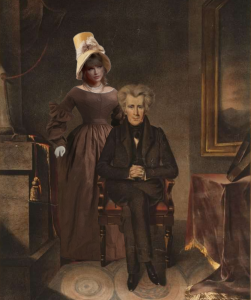Earlier
this year I gave up on one of my favorite shows. I quit. I said no more, I’m not wasting an hour of my Sunday night for this. However, as our entertainment editor I had to write about the season finale that had everyone talking. Thanks to this pa- per, I caught up on “The Walking Dead.” Two heart attacks, three days and numerous screams later, I made it through the season finale.
I don’t think I’m the only one who gave up mid- way through this season, so I’m not going to write a spoiler filled review of the episode. Instead, let’s talk about why this show is destined to go down in the halls of history as one of the best TV dramas of its time.
A heady claim? Possibly. After finishing this season, though, I feel it is entirely warranted.
I think the secret is in the writing. The show is able
to tell an incredibly deep, dramatic cohesive story nearly every episode; no easy feat for a television show. The reason it is able to do this lies in the movie style script. “The Walking Dead” sees the benefits of being an AMC original because it is written theatrically as opposed to the traditional condensed TV style that most networks would require. “The Walking Dead” takes its time to tell the story and create an emotional connection with the viewer. Sometimes this becomes boring, a major problem the last two seasons have faced, but for the viewer that sticks with it, the reward is massive. Or at least, massive heartbreak. It’s not very often that a single moment of silence from a child can break my heart, but in the finale, Carl’s transformation from a kid to a deeply disturbed adult is sealed by these moments. Throw in the extreme frustration viewers felt at the end of the episode and the lack of justice served, and you’ve got an audience wrapped around your finger if you’re a showrunner.
Traditional techniques everyone learned in high school English classes come into play as well. The most noticeable is the conflict narrative. The problem with so many dramatic shows today is their inat- tention to this fairly basic element of the story. “The Walking Dead” is able to tell such a deep story because they commit to their narratives. In season one, it was all about man vs. nature. Nature being the walkers and the elements they had
to brave just to survive. For those who survived season one, man vs. man took over as the narrative for season two. This worked because, for the most part, they
were safe from the walkers
and had to focus on living
with each other in the new,
terrible world they found
themselves in. This season
moved into arguably one of
the deepest narratives, man vs.
self. Every main character on the
show was engaged in an internal battle. It was a war between who they were pre-farm massacre and who they
had been forced to become. As the finale proved, the fact that they were even fighting this war was the proof that they were still human. As Michonne said, many of the other characters were never human to begin with.
From the absolute perfect villain of the Governor, to the symbolic figure Rick
has become, the show has evolved
into an epic tale of good, evil and,
more importantly, everything gray in between. Couple the story with the unquestionable production value thanks to cinematic filming and ridiculous special effects and you’ve got a show that people will be talking about for a long time.
If you haven’t caught up, do it soon. It will be worth your while. I know I’m not alone in saying I can’t wait to see what happens next season.




